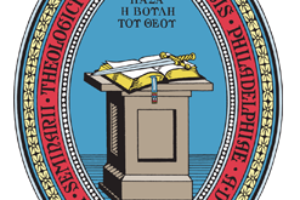Today I will be attending a conference on the topic of Just War at the University of St Andrews. Information can be found here: https://www.st-andrews.ac.uk/divinity/rt/conf/givewar/
I will be blogging in more detail about the conference in two weeks time, but I wanted to get down a few of my thoughts before attending that will hopefully order my own thoughts as well as introduce some of the things I might be thinking about when I write a more substantial post.
The two usual pole points in the discussion, at least from the perspective of Christian Ethics, are Just War Theory and Pacifism. I have not formally studied either in great detail, and the bulk of my reading and thought have been from the side of pacifism. Though my reading of thinkers like Ghandi, Martin Luther King Jr, the Bible, and others, as well as conversations with pacifists I have come to be quite sympathetic to that perspective.
Nevertheless despite my attempts to be a rigid pacifist there are niggling doubts and exceptions that have bothered my thought. Among those are the roles of governments in “bearing the sword,” a phrase that I cannot but interpret as referring capital punishment, and of course the usual extreme examples where it seems at least arguably justified that violence is necessary as a deterrent of evil. Further, ultimately I have to conclude that God Himself is not a pacifist. It is impossible to read the Bible cover-to-cover and come to the conclusion that God doesn’t kill anyone. The writers of the Bible certainly do not shy away from violence and war as metaphors, at least, of positive action. On the other hand, I find in the teachings of Jesus very little room for justification for an individual Christian’s violent response to personal harm. Problems abound and “Just be like Jesus,” is therefore an unhelpfully reductionist truism.
In addition to this I have also come to recognize that a significant part of the American Mythos (or perhaps the Western Mythos, including North America and Western Europe) which I was educated (mostly within a Christian education context) is firmly founded on violence and war. Our war against tyranny (the Revolutionary War) and our war against disunity (the Civil War) gave birth to our nation and its principles. Our rise to ascendancy began with our victory over the world (World War 2) and culminated with our victory over communism (the Cold War). In the midst of that are a number of lesser wars that all contribute positively to what is now the United States’ global hegemony. (Nearly) all of these must be recognized as accomplishing some good or the whole mythos crumbles. (For example, if the Revolutionary War was unjustified, and the Fathers who instigated it were in error, where does it leave us?) Of course, we have a vague concept of conscientious objectors along the way, but these are marginal groups: Mennonites, Adventists, cowards, etc. At no point in that educational experience do I remember being to encouraged to consider the possibility that it is possible, or even necessary, to view this history a different way. The more I compare this mythos, however, to the realities of the Kingdom of God the harder it is to retain such an unsophisticated perspective of that history. But does a more “sophisticated” perspective necessitate the conclusion that these wars were unwarranted, that they were immoral.
So today I will be, hopefully, exploring these issues in more detail. I suspect that because of my doubts about a strict pacifism I will find much to ponder and even agree with. So this post is necessarily a bit a teaser of more to come.
(Cover image courtesty of http://rockanatic.deviantart.com/art/War-and-Peace-120936523)





2 Comments
Leave your reply.